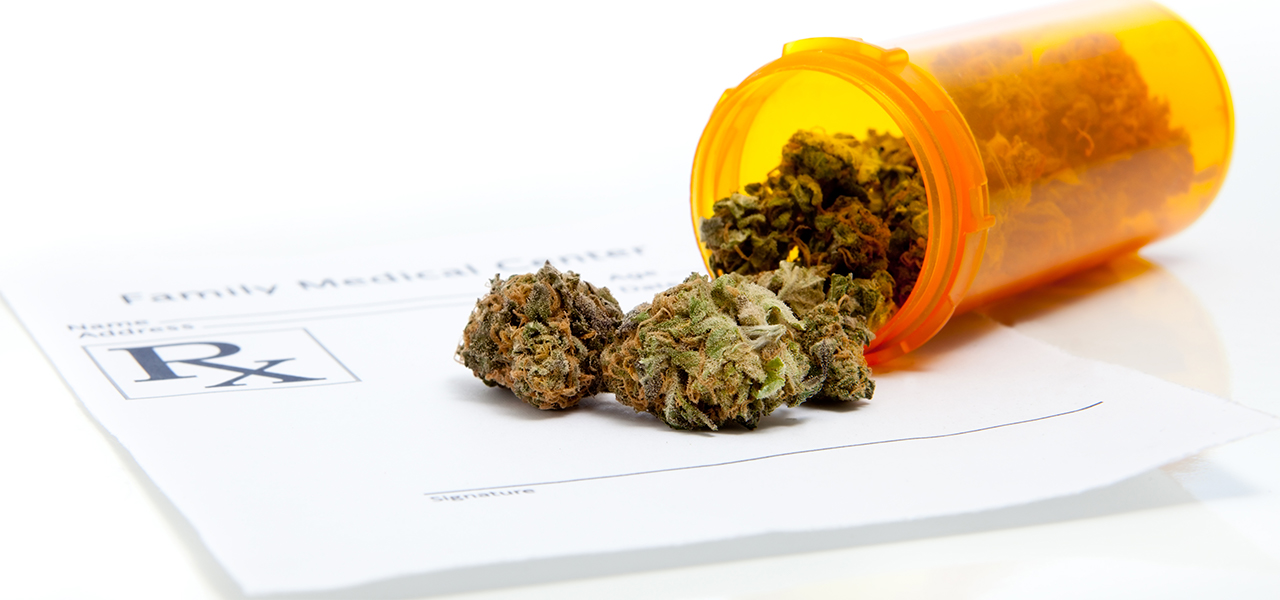
by Karen Kinnaird | Oct 9, 2018
Your ministers may not mention this annual occurrence because they don’t want to bring attention to themselves, but October is Pastor-Staff Appreciation Month. Initiated years ago by H.B. London and Focus on the Family, showing appreciation can have a huge impact on ministers, their wives, their children and ultimately the church itself.
I’ve served as the wife of a minister who has served in various capacities over the past 33 years, as well as worked alongside many ministers and their families. It’s a special privilege to serve, but I can tell you firsthand the need for encouragement and affirmation. I have witnessed an all-out spiritual attack on ministers and their families.
A 2015 Lifeway research study shows:
- 80 percent expect conflict in their church.
- 54 percent find the role of pastor frequently overwhelming.
- 53 percent are often concerned about their family’s financial security.
- 48 percent often feel the demands of ministry are more than they can handle.
It takes someone to champion the cause
Many churches graciously express appreciation to their staff corporately and through the church budget at various times of the year such anniversaries and Christmas. Some do not do anything. Pastor-Staff Appreciation Month is a unique time in which church members are encouraged to do something individually and personally. Just like any other cause, it takes someone to spearhead the effort – to champion the cause, even if it is simply placing an announcement in the Sunday worship bulletin, church newsletter or social media.
In the late ‘80s my husband served as the pastor of a church plant in a suburb of New Orleans. Money was tight for us and the church. Someone took the initiative and organized families to bring us a meal for seven consecutive nights. As a church planting couple, I worked full-time while my husband completed seminary classes and while we were raising babies and balancing the household together. Those meals were a huge blessing to our family.
Years later, after moving to a pastorate in Stillwater and into a home with little storage, the doorbell rang unexpectedly and a china cabinet was delivered. A group of families chipped in and made a perfectly matching purchase. Another year, a similar group sent us to a Bed & Breakfast and made arrangements for our kids to spend the night with church friends. Someone championed the cause.
Over the years, my husband has been blessed in many ways. One favorite is a personal note with a word of appreciation citing a specific time he ministered to them or a sermon that God used to speak directly to them. He’s enjoyed a basket or bag with a few things he mentioned in sermons that he enjoys like Dr. Pepper and Reece’s or humorous gifts. One year, a family gave him a book of pastoral cartoons with cash inserted in the pages.
The benefits for the ministry spouse
It’s been said that the pastor’s wife can be one of the loneliest people in the church. The pastor is the focus of a lot of attention, and often she can get lost in the shuffle as she serves behind the scenes. She carries the private burdens of her husband, carries confidences of the private lives of church members and bears the weight of various church matters. She strives to be gracious and discreet while keeping right relationships. She guards her husband, children and home, attempting to keep priorities in order and balance busy schedules. The God-called spouse knows better than anyone the sacrifice her husband makes to serve God’s people.
Remembering your ministers for Pastor-Staff Appreciation Month will help your staff spouse to feel valued and loved and to persevere. It will inspire her. Make an intentional effort to show her love. Value her unique giftedness. Ladies, reach out to her and do not compete with her. Get her out of the nursery. A minister’s wife who is strengthened will strengthen her husband.
The benefits for the children
Being a pastor’s kid is very hard. All eyes are on them, and they are held to a high standard – a standard that is different from the other kids. Often they feel pressured and like they can’t measure up. Your staff’s kids NEED to know you appreciate the selfless work of their father.
In turn, this will make them feel valued. How many pastor’s kids grow up and don’t want anything to do with the church because they’ve seen the way their father has been treated? They need to see that people really do appreciate their family’s service, and it’s worth it. This can have an impact on them for years to come.
Your pastor and staff need encouragement. It doesn’t need to cost a lot of money. The best thing to do is to look at your pastor and his family and ask, “What can we give them that will meet a need and help them feel loved?”
Tell them you love them. Lighten their load, unclutter their life, have their back when there is controversy, guard their privacy and give them space for their family.
Pastor Appreciation does nothing but make the church better. There is no downside. God will not bless a church above what they bless their pastor. Express your love and appreciation to your ministers this month!
For more ideas and a downloadable brochure go to www.bgco.org/ministries/leadership/pastor-staff-appreciation-month.

by Caleb Moore | Oct 2, 2018
I was among the millions of people last week who listened to every detail of the blistering testimony of Christine Ford and the rebuttal by Judge Kavanaugh. I did not have a side that I was pulling for; I just wanted to hear the facts.
After a full day of questions and answers, I still don’t know the truth, and let’s be honest, neither do you. What we have is a difficult case that is made even more difficult when you throw in a bunch of politicians.
I don’t want to add to the noise that follows such events with my own personal opinion. But I do think this is a good chance to talk about justice. Is there such a thing as true justice in this world?
The answer is an obvious no. Sometimes innocent people go to jail; sometimes those who commit horrendous crimes escape unpunished.
This is one of the reasons that I love my Christian faith. We believe that no sin will go unpunished. We believe that every sin will be brought to light and dealt with by God. So, in one sense, we believe in ultimate justice, but we also believe in heavenly injustice as well.
Let me explain what I mean by that because it can sound scandalous at first. Justice is when the punishment for a crime is equal to the level of crime committed.
As a Christian, I believe that Jesus paid for my sins, my crimes against God, on the cross. I have a hard time seeing this as just. I’m the one who committed the crime, so it follows that I should be the one to pay the penalty.
It is not fair for someone else to have to pay for my mistake. What Jesus did on the cross did not negate God being a just judge, but it did magnify His mercy.
Mercy is when you give to someone something they do not deserve. I should have to stand trial for my crimes. I have wronged God and others many times over.
I stand with Paul when he says he is the worst of sinners. Because of that, I thank God that there was a moment of mercy instead of justice. He took my sins upon Himself, and He gave me His innocence.
Instead of letting these events divide us even more, I just gave you an example of how to talk about it in a way that brings God glory. The message of grace, love and mercy is what the world needs right now.
There is ultimate justice for sinners. If you have sinned, you will have to answer for that sin when you stand face-to-face with God. If you are in Christ, your punishment has already been paid, and your sins are washed away.
If you are not in Christ then the burden you will have to bear is unthinkable, but just.

by Angela Sanders | Sep 4, 2018
I’m always on the receiving end of grace—I know this for sure—but lately, I feel it so deeply I’m tempted to wear a sign that reads, “Thank you in advance for your patience.”
In seasons like this, when human limitations suffocate and the ground I’ve gained seems lost, I thank God for the Golden Rule. Truly.
You’ve heard it, right?
“…Whatever you want others to do for you, do also the same for them…” (Matt. 7:12).
Of course, for this verse to bring me any comfort whatsoever, I must assume everyone, like me, makes mistakes, needs forgiveness, and craves second, third, and fourth chances. I must believe they want and need from me what I want and need from them. Otherwise, what’s the point?
What do I need, exactly? Many things, but here is this week’s short list.
I need you to overlook raw presentation. It’s been an irregular, emotional time, and I haven’t had the presence of mind to plan my words and actions like I usually do.
I need you to assume best intentions. I haven’t had the time and energy to finish every conversation, respond to every question, or offer my thanks to those who so richly deserve it.
I need you not to fill in gaps. If you really need to know to move forward—sometimes we do—please ask me what I meant, what that look was for, and why I said or did what I said or did. I may not even be aware that something passed between us or that it affected you.
I need your patience as I reboot parts of my brain that have lain dormant for a while and figure out how to function in this new normal.
I need you to forgive my absence and take up my slack in spots.
In a nutshell, I need you to love me. It’s a vulnerable place to be, for sure, but I’ve discovered the upside to living here in this state of humble need: an increased proclivity to love in return.
Don’t have the strength? Let me help you.
Don’t have the patience? Hang tight with me.
Don’t have the wisdom? I know the One who does. Let’s seek Him together.
I’m here for you. I mean it, and I’m not sure I always have.
Truth? I’m a much better person when I’m sucking grace by the gallon from the collective pool than when I’m floating effectively above it all, so I thank God today for this trial and give Him all the glory for any good that comes from it.
Things will get better. They always do, even if my circumstances don’t really change, even if they get worse. Sooner or later, I’ll figure out what God’s trying to teach me, and if I respond correctly by letting Him carve away excess and add what I lack, I’ll come away stronger, wiser, more Christ-like. A sharper tool in the Father’s hand, I’ll be ready to move forward, and when I do, I’ll take this short list with me so I don’t forget what I needed from you in this moment, what you will, no doubt, need from me one day.

by Michael Cox | Jul 12, 2018
- Beneficial derivatives of marijuana acknowledged
It is prudent to assert at the outset of this series of brief articles that nobody opposing State Question 788 was against the regulated, prescriptive use of two scientifically-tested and proven derivatives of the marijuana plant:
(1) Cannabidiol (can-nuh-bih-die-all), aka CBD, which has proven effective in some cases of early onset childhood epilepsy, as well as helping minimize some pains, but could not legally exceed 0.03 percent of the THC and has been legal in Oklahoma since 2015; and now, Epidiolex (100 mg of highly purified cannabidiol), an oral solution, was just approved by the FDA, is made from the plant, but has only trace amounts of THC, and will soon be available with a prescription.
(2) Dronabinol has THC (aka Marinol and its synthetic form Syndros) and has been legal with a prescription since the 1980s. But to believe that anyone can introduce into their system these potentially beneficial derivatives through smoking without also introducing poisons as well is, literally, a pipe dream, even using filtration devices, like bongs.
In other words, there were already existing ways to “deliver” the beneficial derivatives of the plant without including the toxins. Additionally, smoking the marijuana makes regulating the useful amount/dosage of CBD or THC next to impossible, because amounts vary in plants and grams smoked, and may also include pesticides, depending on the techniques of the grower.
One need not be a chemist or a doctor to know that anything containing unregulated amounts of THC unleashed on the public is a recipe for disaster. Even with the marijuana plant’s beneficial derivatives, all that glitters isn’t gold.
- Real issues, Dangers of THC, Frightening numbers, Impact of Legalization, Tragic Ironies
The Real Issues
Make no mistake about it. The vote to legalize medical marijuana was not just about the legalization of medical marijuana. It was about the legalization of the THC in the marijuana and was about taking the first step toward the eventual legalization of marijuana and its THC for recreational use with no medical restrictions. Legalization of anything, which will prove to be a scourge to the social well-being of the citizens of the state of enactment, makes this a moral issue and a serious one at that.
The Dangers of THC
THC stands for Tetrahydrocannabinol, the principal psychoactive constituent of cannabis. In other words, it targets the mind, producing both psychological and physiological effects.
The THC bonds with receptors in the brain which help stimulate release of dopamine, creating a “high.” The THC then “over activates” functions which, up to now, were naturally regulated by the body, such as mood, appetite, cognition, and perception, thus compromising all of these, including one’s immune system.
You might have been told that cannabis is an excellent treatment for cancer. But the reality is that it’s more likely to be prescribed, where legal, for the harsh side effects of cancer treatment than for the cancer itself.
Also, for those prone to psychosis or schizophrenia, cannabis can make them more vulnerable to their already existing conditions (Adam Drury, “What Is THC (Tetrahydrocannabinol) And What Does It Do?”). Surprisingly, Drury, a proponent for legalization, admits the dangers. Acute psychosis, hallucinations, delusions, and a loss of the sense of personal identity are also often experienced by those who take large doses of marijuana (National Institute on Drug Abuse).
Here is a simple warning. The selective breeding being done with marijuana today is yielding plants with THC levels that are 20 to 30 percent higher than in the past. To a pothead, this is reason to rejoice because he gets more bang for his buck. But to the rest of us, it is of grave concern because of the effects it induces when smoked or ingested.
If you thought your friends in school were blurry-eyed, sluggish and seeing weird things when high on a THC level of 2 to 4 percent years ago, think of this condition multiplied by 10 due to the increased potency of the THC with its hallucinatory power, and Oklahomans have serious problems.
In Oklahoma we even put certain non-prescription medications containing pseudoephedrine behind the counters to keep people from buying it by the pound to make meth! What do you think is going to happen when people can grow their own pot in the backyard? This is a recipe for disaster.
Marijuana is a drug, the legalization of which will come at the expense of our children and grand-children, creating dependency and treatment issues. It will be a segue to the use of other drugs, impaired health, delinquent behavior and drugged drivers of motor vehicles.
The Frightening Numbers
Baptist Messenger Editor Brian Hobbs has already accurately pointed out that Oklahoma has passed one form of legalized marijuana in 2015, allowing a limited-basis program in the form of cannabis oil extract for certain types of patients, such as those suffering from childhood-onset epilepsy.
This cannabidiol, aka CBD oil, could not exceed 0.03 percent of the THC. On the other hand, Epidiolex, a pharmaceutical pure cannabidiol, has been in development, and has received FDA approval, as noted earlier in this essay. Hobbs also expressed the concerns of the Anti-SQ788 Coalition when the bill more closely resembled legalization of recreational marijuana.
Plenty of data now magnify the concerns expressed in Hobbs’ article and by the Anti-SQ788 Coalition by putting hard numbers to the legal latitudes a person in possession of a state issued medical marijuana license will be able to have, and these figures have recreational use and abuse written all over them:
- Consume marijuana legally
- Legally possess up to 3 ounces of marijuana on their person = 168 joints
- Legally possess 6 mature marijuana plants = 600 pounds or 540,000 joints
- Legally possess 6 seedling plants = the next 600 pounds
- Legally possess 1 ounce of concentrated marijuana at up to 99 percent THC available
- Legally possess 72 ounces of edible marijuana = 4.5 pounds of Brownies
- Legally possess up to 8 ounces of marijuana in their residence = another 448 joints
The Impact of Legalization
Further, municipalities will be prohibited from restricting zoning laws to prevent the establishment of retail marijuana shops and marijuana plants growing in yards will not be able to be restricted – there will be little to no code enforcement, and there will be little to no discipline or oversight of doctors prescribing “medical marijuana.”
So, any driver/operator can be high while on the job provided they don’t have marijuana at work or use it while on the job. This means nurses, surgeons, forklift operators, taxi cab drivers, school bus drivers, over-the-road truckers with headaches and many more will be granted a legal THC-induced high.
We will only wish our neighbors next door were still just growing tomatoes and okra, but where’s the fun and the money in that? Surely, we can see the societal scourge legalization of medical marijuana has unleashed. This Genie is out of the bottle. Putting her back in may be difficult, but not impossible.
Two Tragic Ironies
There is much more to consider, but space here is limited. However, I must include two tragic ironies.
First, consider the driver with a prescription for “medical marijuana” for his frequent and crippling headaches who swerves to miss an animal in the road, crosses the median and collides with a vehicle driven by your 16-year-old daughter, killing her instantly; yet he survives.
He explains to the Highway Patrol Trooper that he swerved to keep from hitting a giant, polka dotted unicorn he thought he saw standing in his lane. He was, of course, hallucinating. But he didn’t realize it at the time. Now the supposed cure for his headache becomes the sanctioned cause for your heartache.
Second, consider the fact that law enforcement agencies and departments will be handcuffed when it comes to imposing consequences or regulating marijuana use and abuse. These are, indeed, tragic ironies.
- Proponent arguments
The Natural Argument
Proponents of “medical marijuana” argue that marijuana comes from nature, so because it is natural, it is good, “Being more in line with God’s will than what is coming out of pharmaceutical laboratories.”
But what is there on earth that is not provided by God through nature? Nothing! Everything comes from nature! Poisonous mushrooms come from the earth too, as do copperheads, ticks, arsenic, cyanide, opioids, and everything else. While everything on earth, including fiddle-back spiders, had a useful purpose in God’s economy at the time of creation, all of creation is under the curse of sin (Rom. 8:18-22).
Creation has been distorted such that its original purpose has been greatly compromised. Likewise, history has proven that smoking plants, which nobody will convince me was God’s original intention for tobacco or marijuana, is just slightly less harmful for the human body than drinking a beer laced with rattlesnake venom!
We can all agree that derivatives of various plants, including marijuana, when “refined” and managed properly can be useful to humans just as mold can be used to produce penicillin after a process of purification. The “natural” argument is impotent in seeking to justify legalization of medical or recreational marijuana.
The Claim That Marijuana Is Better Than Opioid Use and Abuse
Some also claim that marijuana as a medicine is better than opioid use and abuse. The logic here seems to be choosing the lesser of two evils. But it is far from certain that marijuana is the lesser of the two evils being compared.
I am left to rely on medical professionals to answer this. Opioid use at least has a system in place to regulate prescribing and dispensing the opioids. It’s not like Lortab, Percocet, Percodan or Oxycodone are growing in the backyard garden: what could possibly go wrong if they were!? Choosing the “lesser of two evils argument” is always a last resort argument. We simply need to enforce the opioid regulations already in place.
Marijuana is addictive too, so just as people abuse opioids, they will abuse marijuana as well, but they want to do so without impunity, and this is part of what legalization efforts were about and will be in the future for recreational use. And just as people addicted to opioids find ways to obtain them illegally and in greater quantities that are beyond the medically prescribed ways, they are already doing so now with marijuana and will do the same even with marijuana legalized as a medicine.
The Contention That My Body Is Mine, So I Get to Decide What Goes In It
Others contend that they are in pain, their body belongs to them, so they should get to decide what they put in it and do to it. To this I remind that our rights as citizens are not unlimited.
Our liberties are significantly restricted, or even end, when they invade another person’s space, and theirs are restricted or end when they enter our space. This is where moral considerations enter the conversation. We do not live in a social vacuum.
I might be inclined to allow marijuana as a medicine if the user were Jeremiah Johnson living in the mountains hundreds of miles from civilization, who only engaged with grizzly bears, mountain lions, and wolverines, and who would never drive a school bus, a car, a fork truck, or a semi. But the stark reality is that we all live in community.
For instance, when we burn trash on our own property it can affect our neighbor, so even this must be regulated and not left up to the whims of the landowner. Why? To protect others. We must consider the potential impact on others of our drug-induced impairment, and this is true for alcohol, prescription medication, marijuana, and anything which might compromise our mental and/or physical faculties. Our rights are not unlimited, so we must consider how others will be affected by our use of anything.
The Belief That Marijuana Has Great Healing Power
Still others maintain that marijuana is a medication with enormous healing power. To this I point out that “snake oil” salesmen have been around for centuries.
But I have questions and so do you. Is marijuana the next generation “miracle drug”? Is marijuana the great “cure all” natural medicine which the big pharmaceutical companies don’t want us to know about or have access to? I have multiple pages of bibliographic entries of articles on marijuana, many written by medical doctors, and they say “No.” Many people who want legal access to marijuana want it in order to self-medicate, knowing the dangers involved, just as with alcohol.
- Comparing marijuana and tobacco smoking
Recently, Pryor, First hosted a presentation entitled, “‘Medical Marijuana’ Fact vs. Fiction” given by Richard Salter, Assistant Special Agent in Charge, DEA Oklahoma. It was packed with insightful information borne out of years of experience in drug enforcement.
One of the slides made comparisons between smoking marijuana and smoking tobacco. Here are the basic findings, including their sources:
- “Second hand marijuana smoke contains many of the same toxins and carcinogens found in directly inhaled marijuana smoke, in similar amounts if not more” (American Lung Association).
- Marijuana smoke has 33 cancer causing chemicals (Snopes).
- Marijuana smoke has a three-fold increase in the amount of tar inhaled, and retention in the respiratory tract of one third more inhaled tar than cigarettes (New England Journal of Medicine).
- Marijuana smoke deposits 4 times as much tar into the lungs than tobacco smoke (Snopes).
- Marijuana smoke has 50 percent more carcinogens than tobacco smoke (Daily Mail).
- Three cannabis joints per day can cause the same amount of damage to the lungs as an entire pack of 20 cigarettes (Daily Mail).
- Marijuana smoke has ammonia levels 20 times higher than tobacco smoke (ScienceDaily).
- Marijuana smoking yields an “Increased risk of cancer, lung damage, bacterial pneumonia, and poor pregnancy outcomes” (American College of Physicians)
- Marijuana smoke has hydrogen cyanide, nitric oxide, and certain aromatic amines 3-5 times higher than cigarette smoke (ScienceDaily).
- Marijuana smoking causes a five-fold greater absorption of carbon monoxide than cigarette smoking (Europe PMC Funders Group).
- Five percent of lung cancer in a New Zealand study may be attributable to cannabis smoking (Europe PMC Funders Group).
Public exposure of the ills of tobacco smoking took many years and millions of dollars in litigation, but eventually resulted in revealing that tobacco companies had known for years the damage smoking their product was doing, yet, covered it up and continued to rake in billions.
Thankfully, some justice was served in the forms of settlements, national restrictions regarding advertising, and local limitations concerning non-smoking zones. But lives damaged and health compromised cannot be reversed. And now 56.8 percent of Oklahomans who voted have legalized a delivery form of potentially beneficial derivatives of the cannabis plant through a method – smoking – known for decades to be hazardous to health; and some, as seen above, view marijuana smoking as worse than tobacco smoking in many ways.
There is nothing “medical” about this. While America took a giant step forward in exposing and restricting tobacco sales and use, Oklahoma took two steps backward in legalizing marijuana as a medicine, including by smoking it. Medicalization seems to be in vogue in an attempt to normalize.
Whether it is transgenderism, same-sex attraction or marijuana, citizens would do well to be aware of the ploy and eye it with great suspicion. Normalization of the abnormal is the goal. Just because something is legalized doesn’t make it moral. Just because something is medicalized doesn’t make it moral. Normalization is the goal, with legalization and/or medicalization as the clearly chosen paths to the goal. Can anybody say, “Cultural Paradigm Shift”?
While tobacco use and recreational use of alcohol, vicious killers in their own right, are unlikely ever to be outlawed, now Oklahomans have added another way to self-medicate, but the good news is it will only take 6.9 percent of those who voted for State Question 788 to see the foreboding dangers and change their minds.
- The pressure is now on proponents of ‘Medical Marijuana’
The shoe has changed feet. The onus is on proponents of State Question 788, who now must be able to show demonstrable proof of the value of medical marijuana as delivered through smoking it, eating it, or applying it topically.
But the demands for proof of value will not stop there. Opponents will be watching closely for increases in accidents, suicides, violence, crime, pregnancy complications, birth defects, school drop-out rates, test scores, employment snags in terms of product quality and job safety and more which can be traced to marijuana use and/or abuse, as well as increases in homeless citizens and panhandlers.
Marijuana-related health and safety concerns will be on everyone’s radar. While legislative measures may be useful in limiting some of the “consequences” associated with legalizing medical marijuana, both science and experience have taught us that inhaling smoke of any kind – first hand or second hand – is hazardous to health, as is the powerful hallucinogenic side effect of THC.
And if very many of these “markers” spike appreciably, there should be a galvanizing, high-decibel, public outcry to put the Genie back in the bottle ASAP. So, the burden of proof rests squarely on the shoulders of the proponents of legalization.
Opponents of State Question 788 are off the hook. Proponents are, on the other hand, deeply “invested,” and, if Oklahoma’s experience even remotely resembles that of Colorado, proponents will have some serious explaining to do. Time will tell.
In the meantime, those who could possibly benefit from medicinal use of CBD/Epidiolex, Marinol/Dronabinol, or Syndros can get the help they desperately need, and we all want them to have. But they could have had this help anyway without State Question 788, which makes it appear more and more like legalization of “medical” marijuana was nothing but a smokescreen serving as a primer for the ultimate objective of legalizing recreational use of marijuana.
Wake up Oklahoma. Don’t fall for normalizing the abnormal, whether through medicalization, legalization, or simply through “drip-feed” desensitization tactics. Protect yourself. Protect your family. Protect others. Protect your state. Stop the legalization of recreational marijuana when it comes, and it will, support restrictive legislation on “medical marijuana,” and rescind the legalization of medical marijuana as soon as the opportunity arises.





